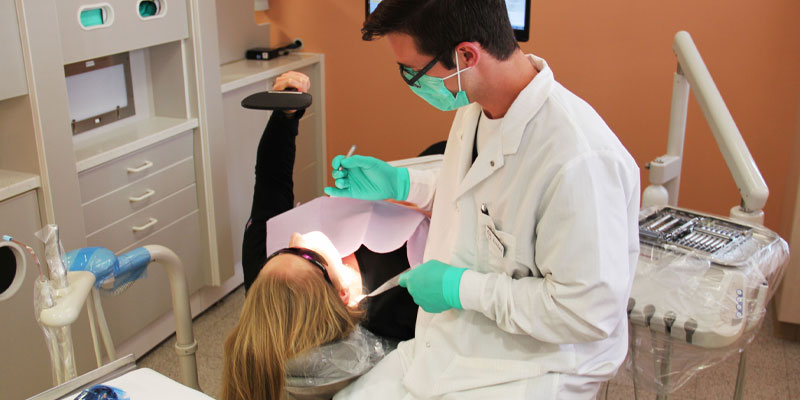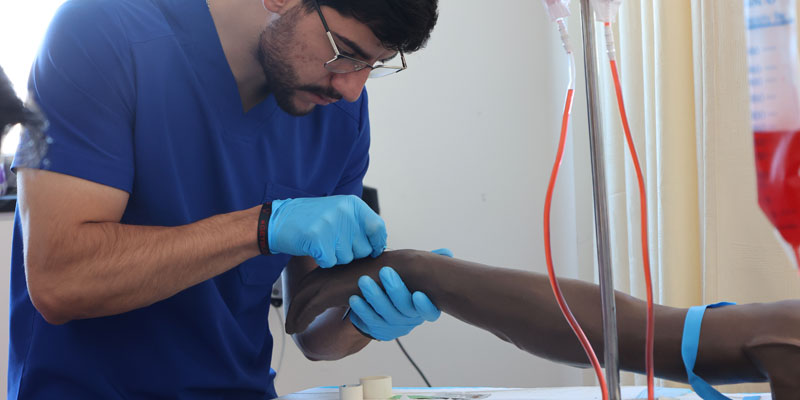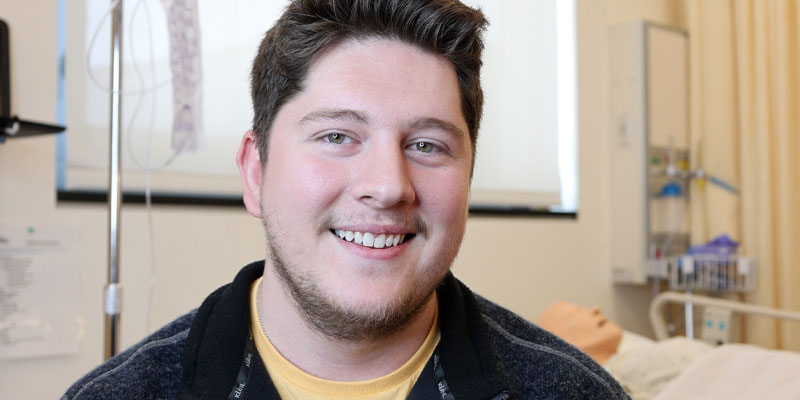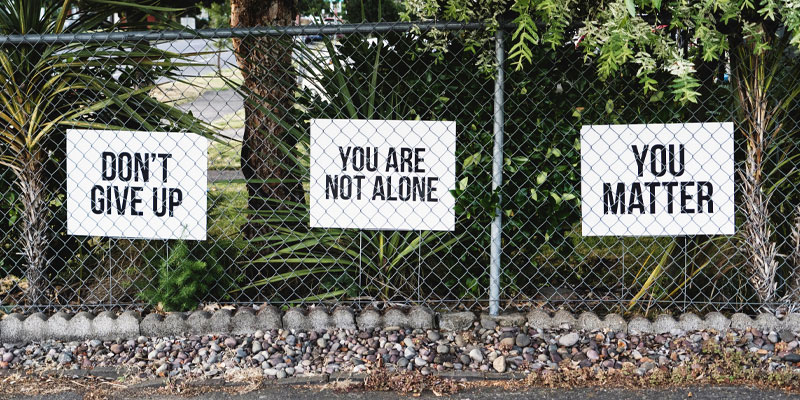
While the transition to college can be difficult, most students eventually adjust to their surroundings. There are many resources at CNCC that can assist in creating a smooth transition to college while maintaining balance and well-being throughout your time as a student. Here are 7 tips to help you in this transition:
1. Get Enough Sleep
- Go to sleep and wake up at the same times every day
- Don’t drink caffeine too late at night
- Avoid napping during the day
- Use your bed only for sleeping
2. Exercise Regularly
Exercise can help with your sleep and improve your overall fitness. Students’ relationships with exercise can vary. Some exercise to relieve stress and prioritize fitting it in even when they’re busy, whereas others let it be one of the first things to drop off when they start to feel overwhelmed.

CNCC students taking a break enjoying what the area has to offer.
3. Eat a Balanced Diet
College can be a particularly triggering time for people with an eating disorder. This is because restricting what you eat, binge eating, and purging are often tied to control and self-esteem. When you’re stressed with school, you can start to feel out of control and bad about yourself.
If you notice you’ve been resorting to unhealthy patterns of behavior, whether new or old, make an appointment to speak with a nutritionist, mental health provider, or primary care doctor at your student health center right away.
4. Make Time for Self-Care
It’s easy to forget to take care of yourself in college. But no matter how busy you may be, you need to learn to schedule time to do something you like or that relaxes you. Some may enjoy getting massages, seeing movies, or engaging in a hobby. Others may prefer performing yoga or practicing mindfulness.
Students can greatly benefit from focusing on the here and now, particularly when anxious or stressed. Consider using a meditation app to hone your mindfulness skills.
5. Recognize the Risks of Substance Misuse
College students often feel pressure to experiment with drugs and alcohol. This is particularly true given the normalization of binge drinking on college campuses, society’s shifting attitudes toward marijuana use, and the prevalence of vaping.
It’s also a good idea to socialize outside parties and look for alternative ways to hang out with friends that don’t involve drugs and alcohol.
6. Value Sexual Health and Safety
Sexual health is another key part of overall wellness. Students should practice safer sex and understand the different methods of protection and birth control. They should also know how to access STD screenings at their college health center. Additionally, students should know how to talk about consent and safety in intimate relationships. Unfortunately, sexual assault remains a widespread issue on college campuses.
Some schools employ bystander training programs, which show students how to take action if they see a violent crime or assault. Such programs can also teach students about reporting mechanisms on campus and mental health treatment options for those who have experienced trauma.
7. Become Health Literate
One of college students’ biggest hurdles is learning to take care of themselves. In other words, you should feel confident doing the following:
- Making doctor appointments online, by phone, and in person
- Discussing health conditions and treatment options
- Using basic health vocabulary
- Asking doctors questions
- Taking and refilling medications
Recognize the Signs and Symptoms of Mental Health Conditions
Signs of a mental health condition include changes in sleeping and eating patterns and new behaviors, such as engaging in risky actions or refusing to socialize. You might also notice changes in mood and/or speech, like talking fast or struggling to tell a coherent story.
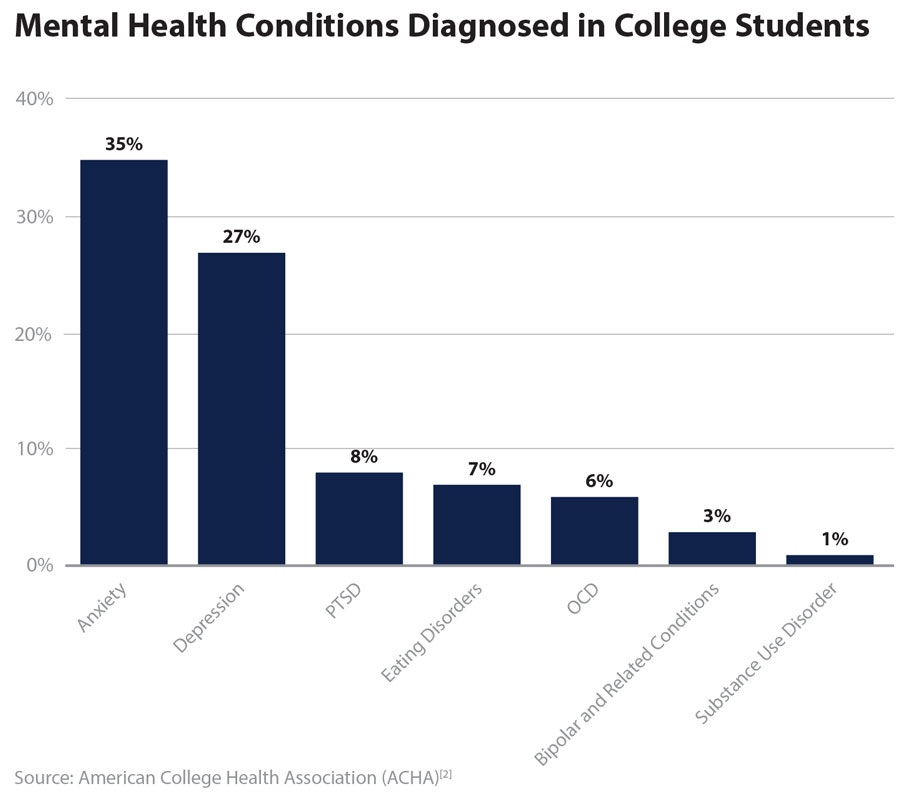
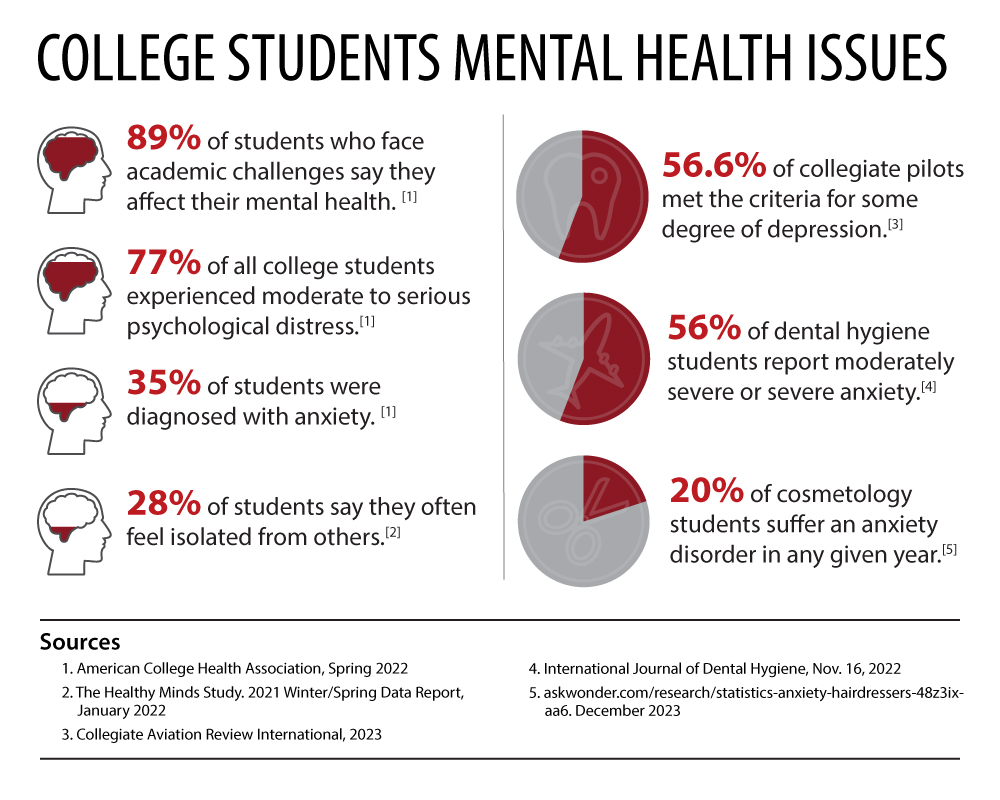
 Know How — and Be Willing — to Get Help
Know How — and Be Willing — to Get Help
Here at CNCC, access to mental health is extremely important and is a main priority. If you need help, we have on campus therapy with Director of Student Wellbeing, teletherapy, and in person therapy through the local hospital. We offer online and in-person access for mental health courses and programs to increase your knowledge on mental health first aid. CNCC also is working toward a mental health app for a one stop shop for all your mental health needs as a single access point.
Have more questions on college and mental health? Connect with Emily! emily.pniewski@cncc.edu
Emily is CNCC’s Director of Student Well-Being and is a licensed associate counselor and is here to help our students succeed at CNCC.

